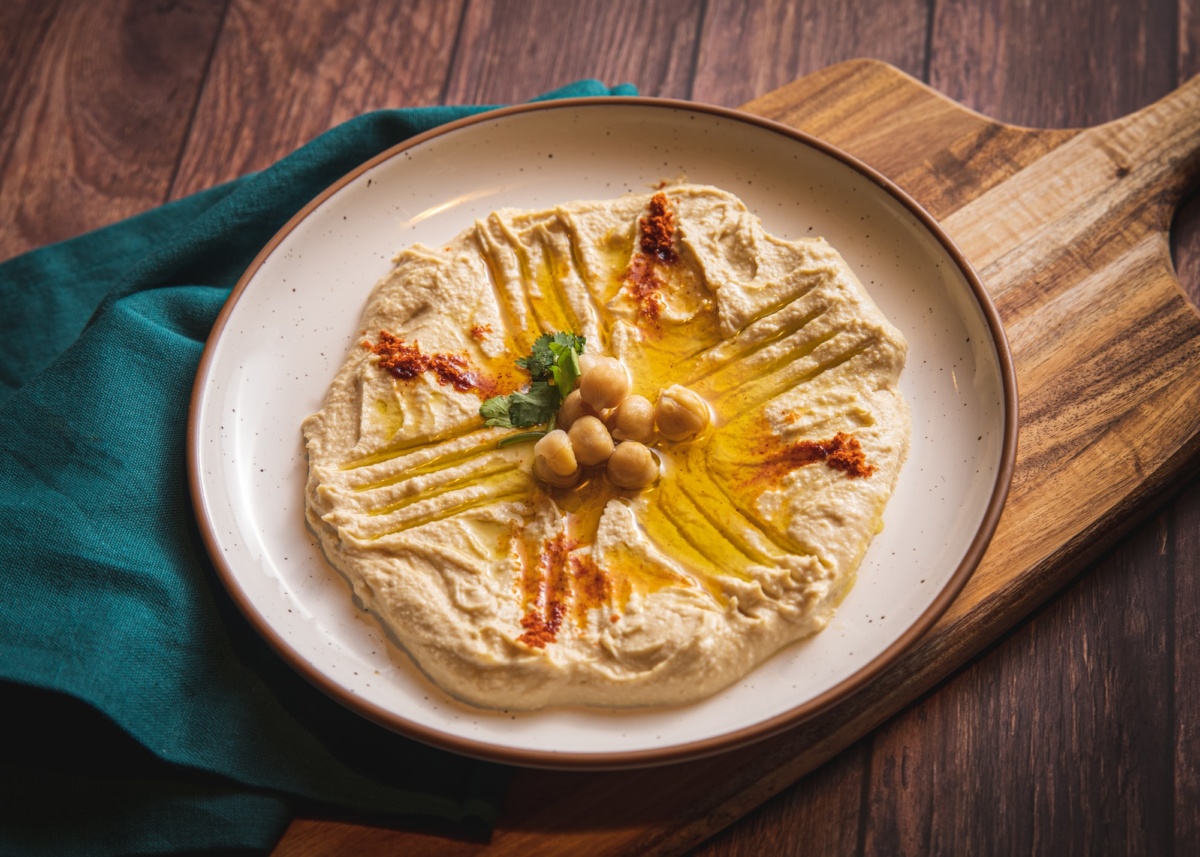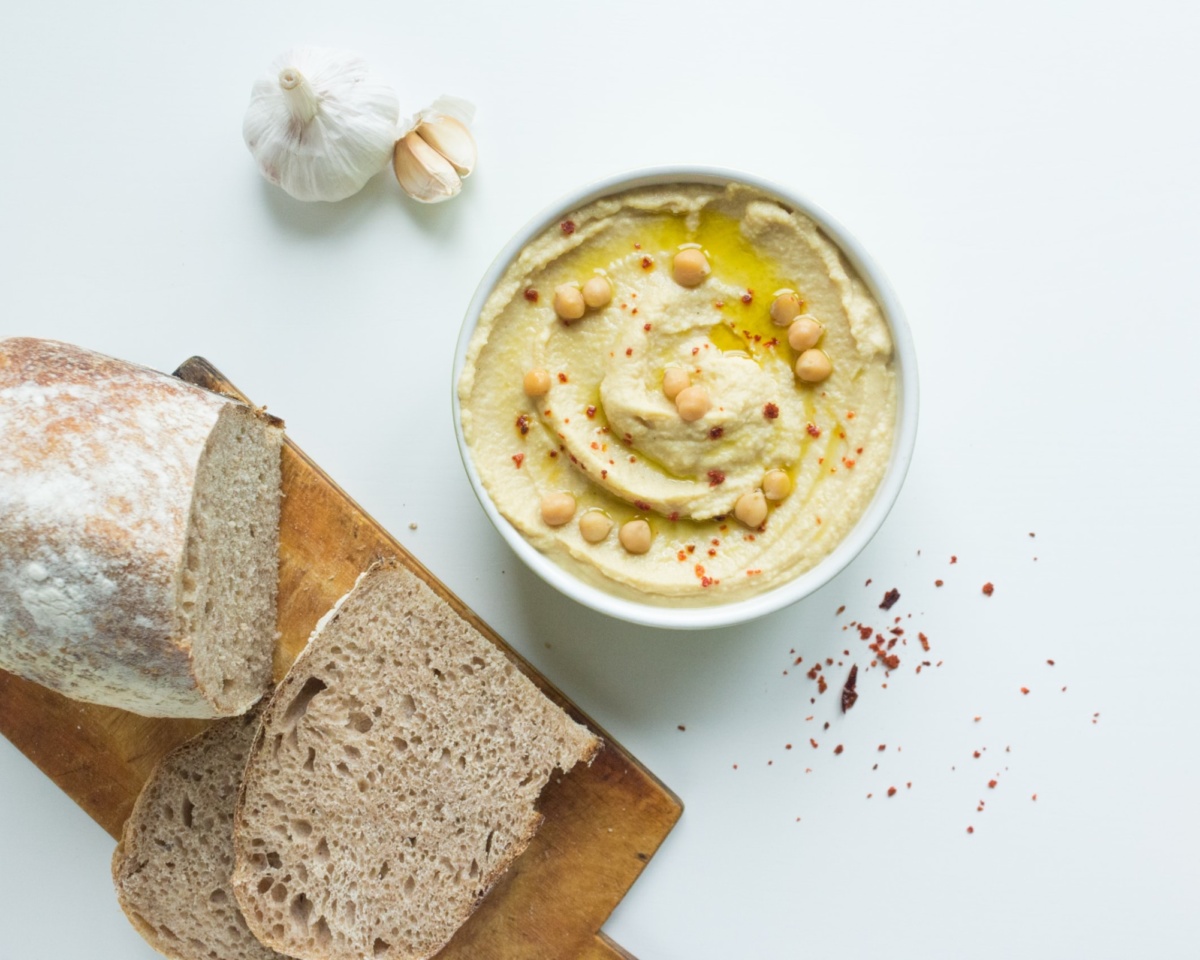
You could always use more chickpeas in your life.
Alright, pay attention, I’m gonna educate you on something: when you say the word “hummus,” you gotta really lean into the hu- sound. Like, you gotta vibrate it, gargle it, almost make it a “huch” sound. “Huchmmus.” This is the proper way to say the word.
Anyway, grammar lessons aside, hummus is absolutely fantastic. Its smooth, salty taste and texture make it one of the absolute pillars of the world of dips. In addition to being quite tasty, though, hummus is also pretty good for you, doubly so if you’re vegan and need to get your nutrients from plant-based sources. See, hummus is made primarily from chickpeas (or garbanzo beans, if you prefer), and chickpeas are absolutely lousy with nutrients, not the least of which being protein. A single serving of organic hummus can get you up to 8 grams of protein, which is great for both meeting nutritional requirements and keeping you satiated during the day.

Hummus is also loaded up with important minerals, including calcium, iron, zinc, and magnesium. It’s like the world’s tastiest periodic table. That’s all on top of the regular vitamins it provides, such as B vitamins and vitamin E. Hummus’ signature texture usually comes from olive oil, and guess what? Yep, olive oil is fully of healthy, natural fats that strengthen and defend your heart against inflammation. Those good fats also help to counteract any bad fats in your system, which makes hummus an excellent snack for those trying to watch their cholesterol.
Finally, all of those little benefits, working in tandem, provide an additional combined benefit of better blood sugar regulation, lowering your glycemic index and reducing your risk of diabetes. Basically, you can’t go wrong with hummus. Just remember to pronounce it correctly.




